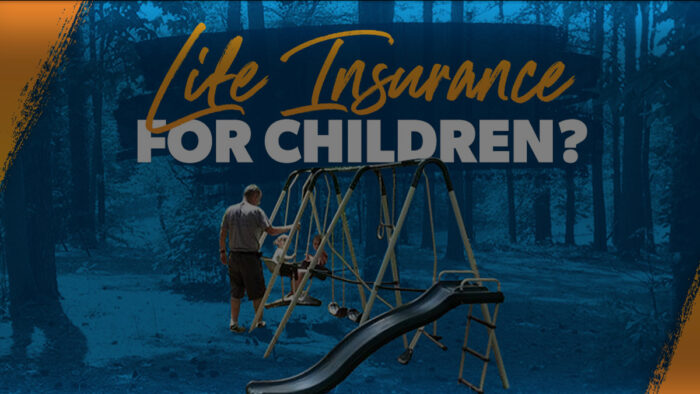Child life insurance is a type of insurance policy that provides coverage for a child’s life. In the event of the child’s death, the policy pays out a death benefit to the policyholder or beneficiaries.

While it may seem like an unusual product, life insurance for children can actually be a valuable financial tool for families.
It is purchased to protect a family against the sudden and unexpected costs of a child’s funeral or burial, and it helps to secure inexpensive and guaranteed insurance for the lifetime of the child.
This type of insurance is purchased by parents or guardians on behalf of a child. Child life insurance benefit is much like that of an adult life insurance product.
A child life insurance benefit can be paid if your child passes away or is diagnosed with a terminal or critical illness. A child life insurance policy serves as a financial safety net to help the family get through a very difficult time.
How Does Child Life Insurance Work?
Life insurance for children may seem like an odd or even morbid product, but it can actually be a valuable financial tool for families. Child life insurance works similarly to adult life insurance, but it is specifically designed to meet the needs of families with young children.
- The policy is purchased by the parents or guardians of a child.
- The child is the insured person, and the parents or guardians are typically the policyholders.
- The policy typically has a lower death benefit than adult policies, but it can still be used to cover the costs of a funeral, medical bills, and other expenses.
- The policy may also include accidental death or terminal illness benefits, which can provide additional protection for the child.
Understanding how child life insurance works will help you make an informed decision while trying to get a policy for your kid.
What to Know About Buying Life Insurance for Children
When buying life insurance for children, there are a few things to keep in mind. Here are some important things to know:
- Children’s policies typically have lower premiums than adult policies.
- The child must be under a certain age to be eligible for coverage.
- The child’s medical history may be taken into account when determining eligibility and premiums.
- There are a number of different policy options to choose from, including whole life, term life, and universal life policies.
Be sure to shop around and compare policies from different providers to find the best fit for your child.
What’s Needed to Buy a Child Life Insurance Policy?
There are a few things you’ll need to have in order to purchase a life insurance policy for your kids. They include:
- The child’s date of birth and social security number
- The child’s medical history, including any health conditions they take
- A list of the child’s current beneficiaries, if applicable
- Financial information, such as income and expenses.
- Contact information for the policyholder, including name, address, and phone number.
Once you have all of these, you can proceed to buy a life insurance policy for your kid. Unlike other insurance policies, there are usually no hiccups in getting approved.
Pros of Buying Life Insurance for Children
While children may not have the same financial responsibilities as adults, it’s never too early to start planning for their future.
- The ability to lock in a low premium since children typically have lower rates than adults
- The potential for cash value growth over time, if the policy is a whole life policy
- The ability to add riders, such as critical illness or disability coverage, to the policy as the child gets older
- The option to convert the policy to a permanent policy when the child reaches adulthood
- It provides funds for funeral expenses.
- It has a cash value for children.
Above all, it can provide financial protection, tax benefits, and peace of mind for parents. While it may come with some costs and emotional considerations, for many families, the benefits outweigh the drawbacks.
Cons of Buying Life Insurance for Children
Despite its benefits, life insurance for children isn’t without its downsides. The main cons include:
- Cost: Child life insurance policies do have premiums, which can add up over time.
- Health changes: As the child grows and develops, their health and habits may change, which could affect the policy in the future.
- Emotional impact: For some, the thought of purchasing life insurance for a child can be emotionally difficult.
- Lack of need: It’s possible that the child may never need the coverage, meaning the premiums would have been spent for nothing.
Child life insurance is not a decision to be made lightly. While there are benefits to purchasing such a policy, it’s important to weigh the potential costs and emotional impact. Ultimately, it’s up to the individual to decide whether or not child life insurance is right for them.
FAQs
Why would someone consider buying life insurance for a child?
Parents or guardians may consider buying life insurance for their children to cover funeral expenses, medical bills, or other financial obligations in the event of the child’s death.
Additionally, some policies offer the opportunity to lock in lower premiums for the child’s future.
What types of child life insurance policies are available?
There are typically two types of life insurance policies for children: whole life insurance and term life insurance. Whole life insurance provides coverage for the child’s entire life and includes a cash value component that grows over time.
Term life insurance provides coverage for a specified term, such as 10 or 20 years, and does not accumulate cash value.
How much does child life insurance cost?
The cost of life insurance for children varies depending on factors such as the child’s age, health, type of policy, coverage amount, and insurer. Generally, whole life insurance policies tend to have higher premiums than term life insurance policies.
Can child life insurance policies be used for other purposes?
Some child life insurance policies offer cash value accumulation, which can be accessed by the policyholder or beneficiary for purposes such as college tuition, a down payment on a home, or other financial needs.
What happens to the policy when the child reaches adulthood?
Depending on the policy terms, some child life insurance policies allow the insured child to take ownership of the policy and continue coverage as an adult.
Alternatively, the policy may convert to a different type of policy, or the cash value may be accessed by the policyholder or beneficiary.
Is child life insurance necessary?
Whether life insurance for children is necessary depends on individual circumstances and financial goals. Some parents may prefer to invest in other financial instruments, such as college savings plans or retirement accounts, instead of purchasing life insurance for their children.



